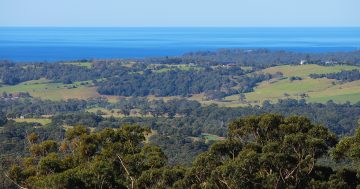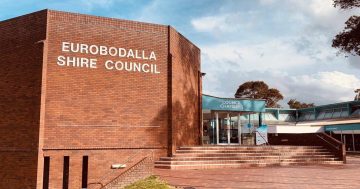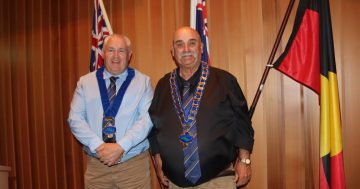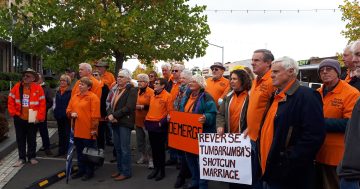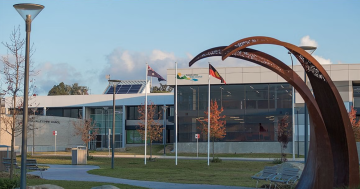
Eurobodalla Shire Councillor Tanya Dannock previewed the online Balancing Act platform recently. Photo: Eurobodalla Shire Council.
NSW councils like Eurobodalla Shire Council (ESC), not popularly known for their belt-tightening in tough times, appear to be reeling under the Independent Pricing and Regulatory Tribunal’s edict that rate increases will be capped at 0.7 percent for the 2022/23 year.
ESC has set up an online project titled Balancing Act. It asks members of the community to tell council how they would like its budget to be spent by allowing amounts to be moved between expenditure categories in broad council-speak terminology.
Being on the website, the number of meaningful responses will be limited to those who have access and the time to research what each of the expense areas entail. A relatively small sampling is problematic but the more serious concern is that only by cutting services in one area, can more be spent in another. The program does not cater for making savings or efficiencies – something that the community has strongly recommended in the past.
ESC’s 2009 application for a Special Rate Variation (SRV) was rejected by the Minister for Local Government, who said: “Communities expect good financial management by councils at all times, but particularly during tough times” and, then as holds now, “there was never a better time to improve council financial management”.
Not surrendering, council held a series of “community engagement deliberative forums” early in 2010, suggesting that if residents wouldn’t accept a rate rise, they must agree with some services being cut or reduced.
Residents clearly rejected this ultimatum-like proposal, urging council to conduct an independent efficiency review to see what savings could be made before considering increasing rates.
In 2014, the then councillors did approve an SRV but for an amount less than half that requested by staff. After this lower (and really insufficient) increase, infrastructure maintenance and replacement costs have compounded without additional commitments, such as Bay Pavilions at Batemans Bay.
Since 2010, no independent efficiency review has been held. However in 2015, in its 81-page application to be classed by the state to be “fit for the future”, council did write it has “an ongoing organisational service review program to ensure that council’s services are efficient, effective, meet community needs, support the strategic direction of the organisation and avoid any duplication of services with other service providers”.
Any suggestions for a rate increase or service reductions will never be received well in the community. That applies especially at this time after the recent traumatic events and their adverse effects on the wellbeing and financial buoyancy of the community. All the more so if any of council’s efforts towards expenditure-saving are neither explained nor evident.
If ESC was “fit for the future” in 2015 and has ongoing internal service reviews still in place, why now are residents being asked what services can be reduced or cut?One could think the “Balancing Act” is one primarily for the council internally and not so much for the community.
Let us hope the new councillors will exercise wisdom in their budgeting sessions over the next few months and that they will insist on full, frank and honest explanations of council’s position, especially where expenditures have increased in recent years.
We hope, too, that they participate in a comprehensive community consultation and engagement process before making final budgetary decisions. If it takes a little longer to be sure, so be it.
A retired businessman, Jeff de Jager has lived in the Eurobodalla Shire since 2002. His keen (and sometimes critical) interest in council developed after having had several contacts with different divisions’ operations while working as a volunteer with a number of community organisations.







